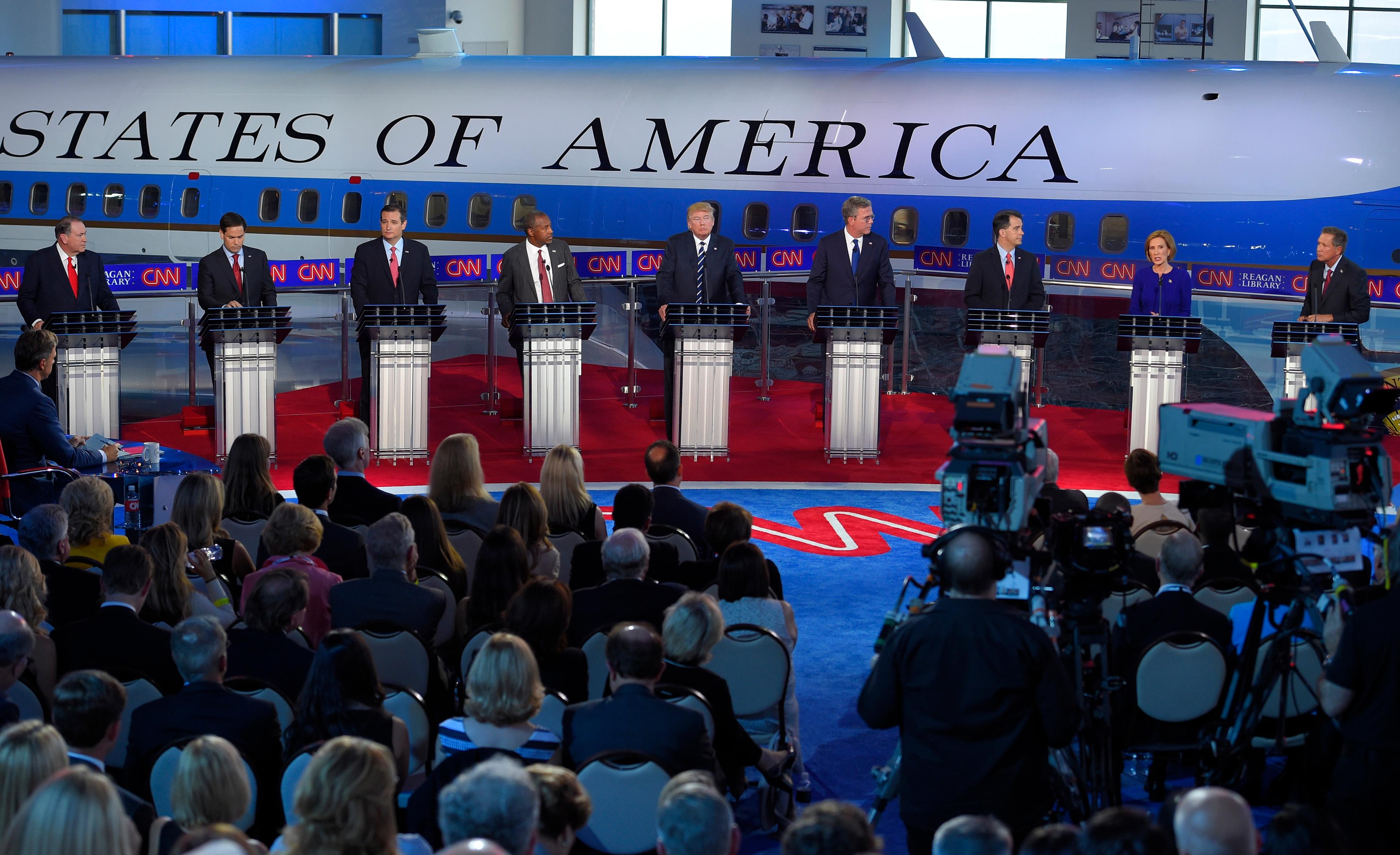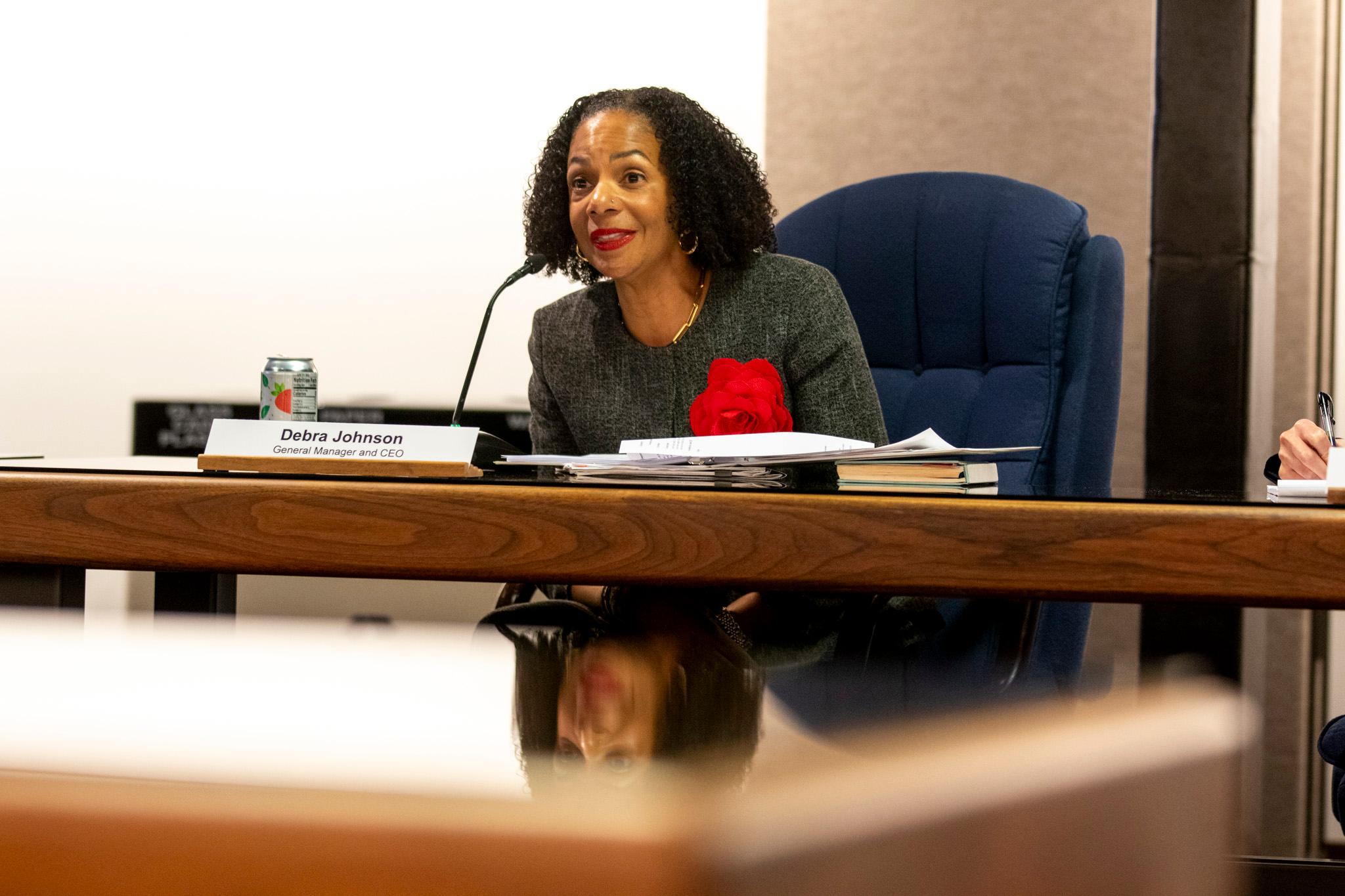

Leading Latino conservatives are meeting Tuesday before the rest of the media descends on Boulder for the third Republican debate. On the agenda: Take several primary candidates to task for how they've been talking about immigration.
Why now? Good question, since the debate itself is supposed to focus on the economy. But this is the first major GOP 2016 presidential campaign event to take place in a state where the Latino vote could be decisive.
CPR's Megan Verlee and Michael deYoanna explain more about why Colorado Latinos are so important to the 2016 election cycle.
Latinos make up about 14 percent of the state's potential voters. Why is the Latino vote is so crucial?
Verlee: "It's a numbers game. Colorado is a very evenly split state and so how a candidate does with relatively small groups of voters can have a big influence.
"There's polling firm called Latino Decisions crunched the numbers and they determined that a Republican candidate will need to get more than 40 percent of the Latino vote to carry Colorado. [...] Or to offset losing a chunk of the Latino population, they will have to pull in a lot more of white voters than McCain or Romney did.
"One disclaimer -- Latino Decisions did this analysis on behalf of a group that advocates for comprehensive immigration reform and they are now currently under contract by the Clinton campaign. But I've heard plenty of conservatives use very similar numbers. And it worries them because a Republican presidential candidate hasn't won more than 40 percent of Latinos here in a quite a while."
How have Latinos voted in recent presidential elections?
deYoanna: "[In 2004,] President Bush was making inroads with Latino voters. He didn't win them, but he did capture 40 percent of them in one of the elections. Then along came President Obama and he swept that away, carrying Latinos with cushy margins for the Democrats, including here in Colorado, according to Pew Research."
Verlee: "That trend line is very worrying to the conservative strategists I talk with. But when I talked with Sylvia Manzano from the polling firm Latino Decisions, she said it also should give conservatives some hope because most Latinos are not cradle-to-grave Democrats"
"We've seen a lot of crossover voting. Our polling has shown over half of Hispanics have voted for Republicans in the past. They are absolutely a swing electorate," Manzano said.
How does the party propose to win over Latinos as long as Trump is near the top of the pack?
Verlee: "It's tricky. They're clearly hoping Trump will go away because the risk is not just Trump himself -- it's the support he's getting from the Republican base for saying these kinds of things.
"Trump's one man, but his supporters risk alienating many Latinos from the entire party, it becomes an identity issue. Going back to the influential Latino Republicans who are meeting in Boulder today -- the message they want to send to potential party donors and to Republican voters in general is that anti-immigration candidates like Trump are doing long term damage to the party, no matter who wins the nomination. The meeting is being organized by Alfonso Aguilar. He's a former Bush official and now works with a conservative think tank that advocates for immigration reform:"
"Sometimes it only takes one or two rotten apples to create the perception that all Republicans are anti-Hispanic or anti-immigrant, and that is certainly not the case."
Verlee: "And Democrats are definitely doing their best to capitalize on that perception, as is clear from the several events they're hosting this week to register and mobilize Latino voters."
CPR News has been talking with the Latino voters, some of whom will watch the debate with us -- what issue is most important to them this election?
deYoanna: "The economy -- that's the mantra. [...] I heard in my conversations over and over with conservative-learning Latinos. They're concerned about the quality of jobs that are available -- and say opportunities, including those at the professional level, are hard to come by. I spoke with Johnny Franco of Denver. who works as an airline attendant:"
"You know, all of our jobs are being shipped to Asia and to China, and that’s really a big deal. I think that we should be worried about that and I don’t know that the Democratic candidates would have that on a high priority,” Franco said.
deYoanna: "The thing about Franco is he's exactly the kind of voter Republicans are looking for. He voted for George W. Bush, but then turned Democrat for both of the Obama elections. If I was an odds maker, I'd look to see who this guy is going to pick. Right now, he likes Donald Trump, but he thinks Trump could do a better job communicating to Latinos."
What about immigration? That's generally assumed to be the top issue for Latinos.
Verlee: "I've been asking that to some of the political insiders that I'm chatting with. They describe immigration as more as a "gateway" issue for Latinos. So the important thing is that a candidate not the 'wrong' things about immigration, like disregarding the contributions of immigrants to the country or proposing harsh tactics to get people to 'self-deport.' Romney's position on 'self-deportation' comes up a lot when people talk about this.
"As long as you don't say the wrong thing, voters are willing to listen to candidates on a range of other issues. They're even willing to listen to a range of opinions about what to do about immigration.
"What I hear from a lot of conservative Latinos is that if Congress could actually pass effective immigration reform and get that issue off the table and out of Republican primaries, the party would stand a very good chance of winning back Latino voters on economic and social issues."
What did our panelists tell you about immigration?
deYoanna: "Latino conservatives I spoke with are as divided as anyone on the issue. But here's the thing: They don't like the stereotyping. And some say it's borderline racist what they're hearing.
"These conservative Latinos aren't happy [that] people may have crossed the border illegally. They are sympathetic to why they want to be here and say the immigration system is broken. But what they don't want are sweeping statements that make all Latinos look guilty of something when so many work hard and play by the rules.
"Another of the people who will be joining us to watch the debate is Eddie Espinoza from Wheatridge. He runs a tech company and is a long-time conservative. I asked him if he feels the GOP is losing voters because of the language some candidate use about immigration:"
"From the street level? Absolutely, absolutely."
How is Colorado's Republican Party pitching itself to Latinos?
Verlee: "I talked with the head of the Colorado GOP, Steve House, and he says, it's time for the Colorado's republican candidates to get much more specific with Latino voters about how the policies they support specifically help [Latinos].
"House says in the past when the party talked with Latino voters about education, which also comes up as a top priority for Latinos, the party would pitch its priorities: more school choice, pay for performance, that kind of thing.
"Going forward, House wants to hear GOP candidates to connect those policies specifically to the concerns of the Latino community -- so say, set a target to raise the high school graduation rate for Latino males, very low right now, and then explain how Republican policies will achieve that.
"Colorado Republicans are also very encouraged by how well Sen. Cory Gardner and Rep. Mike Coffman did with Latino voters two years ago. I think they're hoping that at least at a state level, their candidates can learn from that models -- which involves a lot of community engagement and outreach, advertising in Spanish-language media. And, this is a word, I hear a lot talking to folks about these issues -- respect. A lot of respect for Latino voters."








